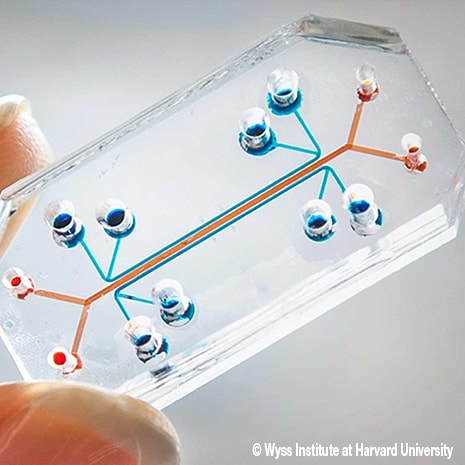Harvard University researchers find exciting solutions to microphysiological systems
Orange County, CA - November 3rd 2016 - Researchers from Harvard University have made a discovery with the potential to replace animal testing and traditional cell cultures for biomedical research. Utilizing a 3D printer, researchers developed a heart-on-a-chip with integrated sensing for mass production and customization. This will allow researchers to more easily collect dependable data for short-term and long-term studies.
Organs-on-a-chip, also called microphysiological systems, were previously difficult to manufacture, requiring an intricate, multi-step, lithographic process. Collecting data also required a large set-up for the device such as microscopes and image recognition software needed to capture information.
The chip’s structure and function imitate native tissue making it a favorable alternative to animal testing. In the US alone, over 100 million animals are killed every year for various medical training and experimentation. Harvard’s manufacturing process shows potential to allow rapid design of the chips and implementing properties matching specific diseases or individual patient’s cells, making them favorable over animal testing.
 “This new programmable approach to building organs-on-chips not only allows us to easily change and customize the design of the system, but drastically simplifies data acquisition,” said Johan Ulrik Lind, first author of the paper, postdoctoral fellow at the Harvard John A. Paulson School of Engineering and Applied Sciences (SEAS), and researcher at the Wyss Institute for Biologically Inspired Engineering at Harvard University.
“This new programmable approach to building organs-on-chips not only allows us to easily change and customize the design of the system, but drastically simplifies data acquisition,” said Johan Ulrik Lind, first author of the paper, postdoctoral fellow at the Harvard John A. Paulson School of Engineering and Applied Sciences (SEAS), and researcher at the Wyss Institute for Biologically Inspired Engineering at Harvard University.
Researchers developed six inks that integrated soft strain sensors within the micro-architecture of the tissue. The team then 3D printed those materials into a cardiac microphysiological device with integrated sensors in a single, continuous print session.
The chip contains multiple wells, each containing a unique tissue and integrated sensors, providing scientists with the means to study multiple engineered cardiac tissues at once. The research team performed drug studies, as well as long-term observations of gradual changes in the contractile stress of created cardiac tissues to demonstrate the efficacy of the device.
“Researchers are often left working in the dark when it comes to gradual changes that occur during cardiac tissue development and maturation because there has been a lack of easy, non-invasive ways to measure the tissue functional performance,” said Lind. This will allow continuous data collection as the tissue matures, allowing scientists to study gradual effects of chronic exposure to toxins.
The published report can be read in Nature Materials, depicting how this innovation and its accelerated manufacturing method holds the solution to current problems met while studying microphysiological systems and its auspicious implementation in future research.
Contact Ampronix:

Email: info@ampronix.com
International Sales: +1 949-273-8000
Domestic Sales: 1800-400-7972 for US and Canada
Follow Us:
Share This Article:
View our Product Catalog Online Here
About Ampronix
Ampronix is a renowned authorized master distributor of the medical industry's top brands as well as a world-class manufacturer of innovative technology. Since 1982, Ampronix has been dedicated to meeting the growing needs of the medical community with its extensive product knowledge, outstanding service, and state-of-the-art repair facility. Ampronix prides itself on its ability to offer tailored, one-stop solutions at a faster and more cost-effective rate than other manufacturers. Ampronix is an ISO & ANSI/ESD certified facility. To learn more go here.
Harvard University researchers find exciting solutions to microphysiological systems Orange County, CA – November 3rd 2016 – Researchers from Harvard University have made a discovery with the potential to replace animal testing and traditional cell cultures for biomedical research. Utilizing a 3D printer, researchers developed a heart-on-a-chip with integrated sensing for mass production and customization. This will […]



